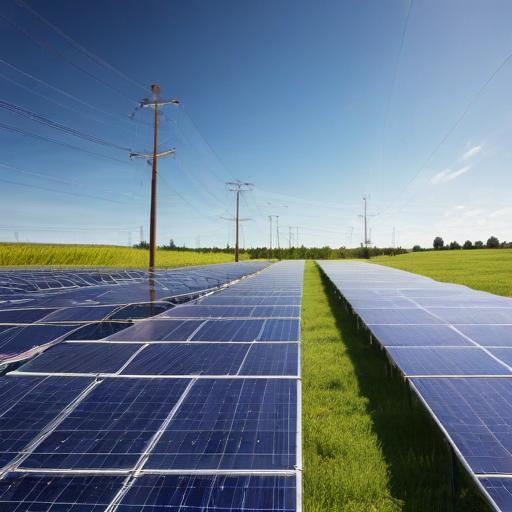As electricity prices continue to climb, many businesses and homeowners in West Virginia are turning to solar power as a cost-saving solution. However, proposed changes by utility companies could jeopardize that option for future customers. Appalachian Power and Wheeling Power, two major utility providers in the region, are currently seeking to decrease the net metering credit for solar customers by nearly 70%. This credit allows solar users to receive compensation for excess energy generated at the same rate they are charged for electricity, significantly aiding in the financial feasibility of installing solar systems.
In conjunction with this request, the utility companies are also pushing for an average rate increase of $27.15—approximately 16%—affecting about 460,000 residential customers. The companies argue that the current rates do not adequately support their ongoing investments—amounting to $1.3 billion—into maintaining and enhancing their infrastructure, particularly their coal-fired power plants. Such changes would likely have a considerable impact on consumers already struggling with rising energy costs.
Concerns arise that if net metering credits are reduced, it would discourage new solar investments. For instance, Rev. Nancy Woodworth-Hill from Lawrencefield Parish Church explained how their solar installation has allowed them to save over $100 each month, leading to an estimated total saving of more than $77,000 over the system’s lifespan. Such savings enable the church to allocate funds to other important areas, ensuring sustainability for their future.
The proposed changes would affect only new solar customers, who would sell energy back to the utilities at a new wholesale rate of roughly $0.0574 per kilowatt-hour, a stark contrast to the current market rate. The utilities aim to reconfigure net metering to ensure that non-solar customers are not inadvertently subsidizing solar users. However, studies suggest that the existing net metering structure does not impose a significant burden on non-solar customers and yields greater economic benefits.
Current solar customers would remain under the existing credit system for 25 years, benefiting from the current rates. Other electricity providers in West Virginia have already secured adjustments similar to the proposals from Appalachian Power, thus establishing a precedent for the ongoing discussions. The Public Service Commission (PSC) has also suggested an alternative rate of $0.124 per kilowatt-hour, which reflects a more favorable credit for solar customers.
The PSC’s decision on the utility companies’ request is anticipated in August, leaving many interested stakeholders hoping for a favorable outcome that supports the growth of solar energy use in the state. This situation highlights the ongoing tension between traditional energy providers and renewable energy interests, which calls for thoughtful policy considerations that accommodate both economic and environmental needs.
